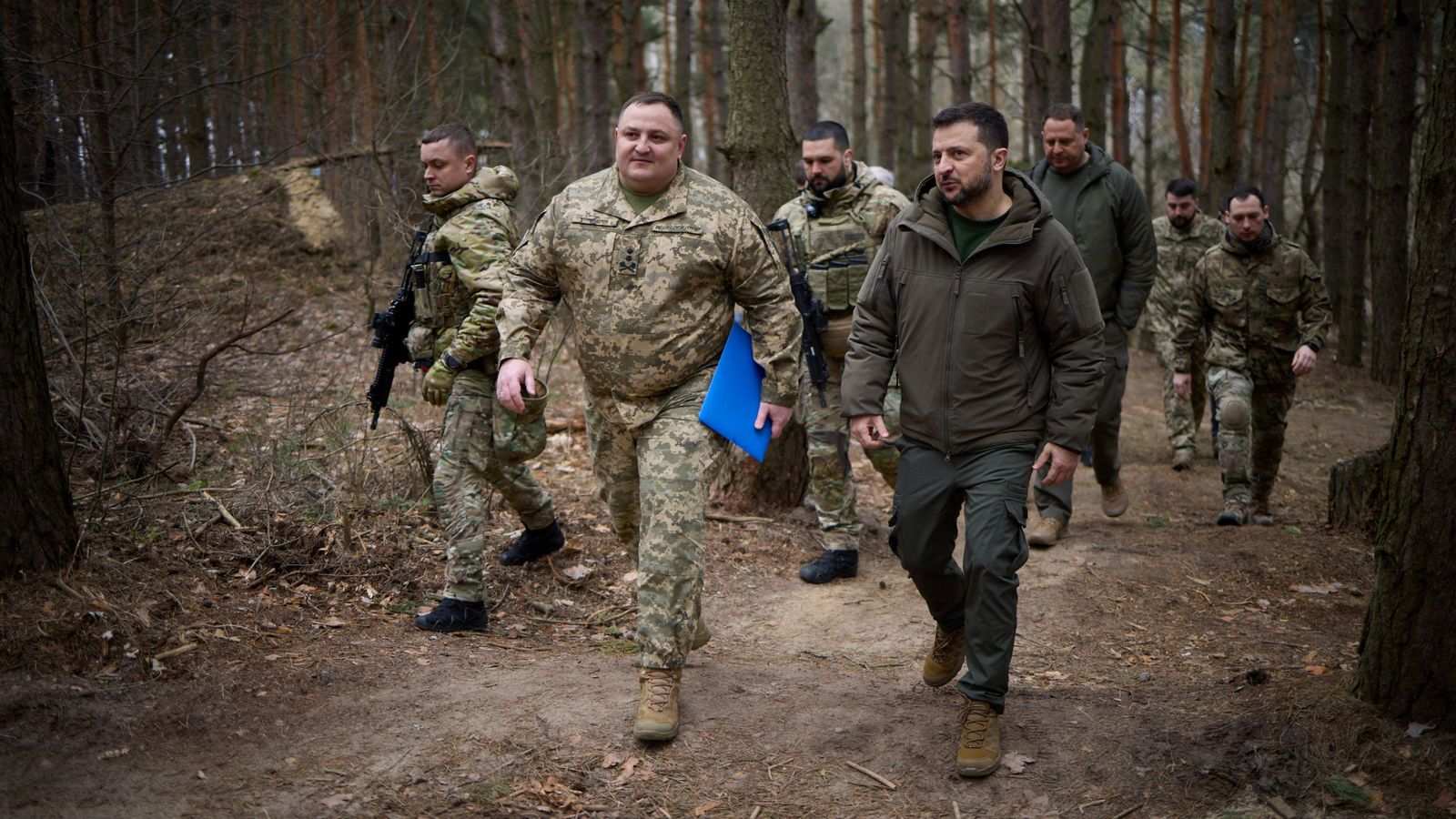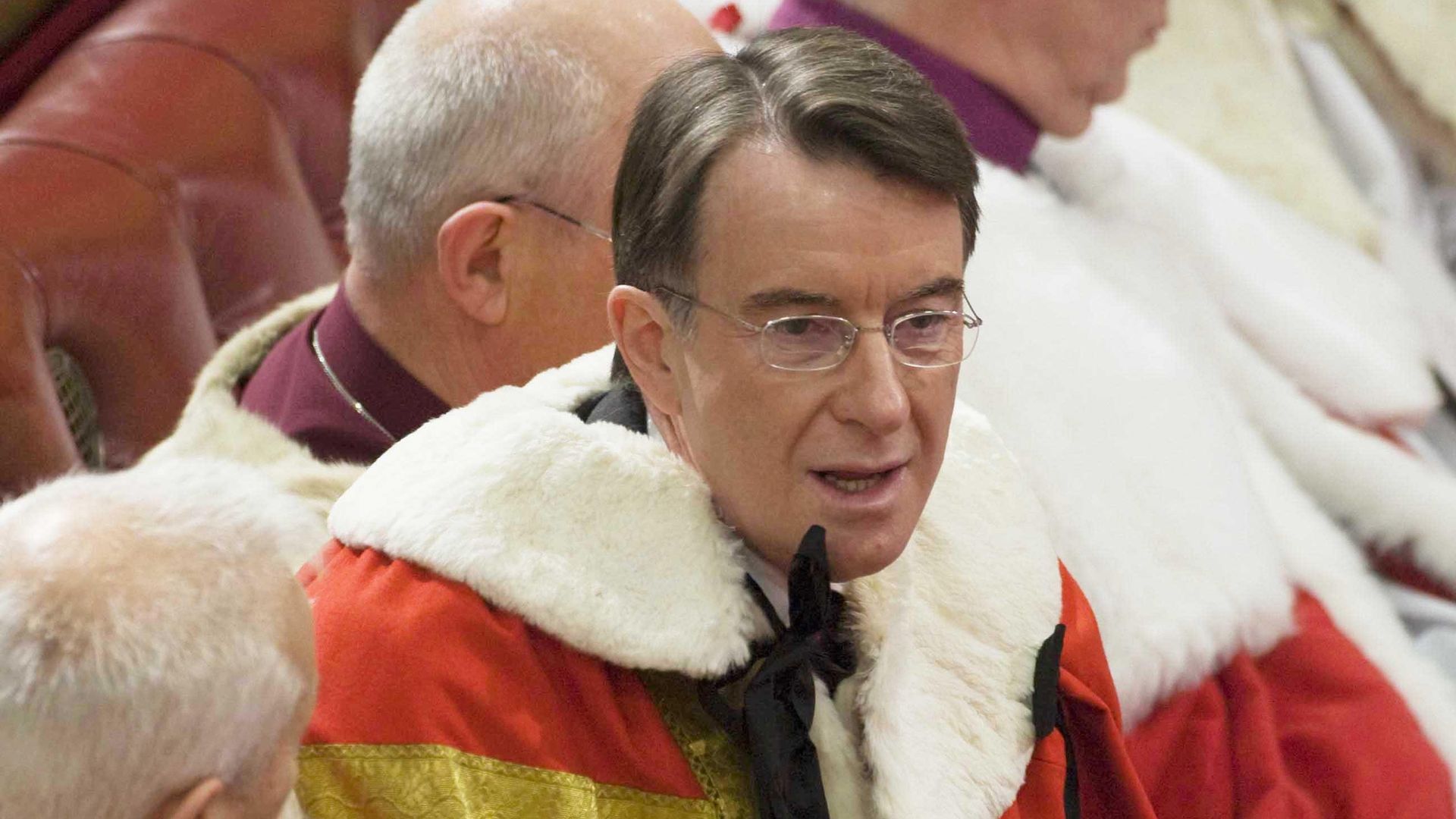Last spring, the mood in Ukraine was upbeat.
The West had rallied to President Zelenskyy’s call for military support to enable a spring offensive, and there was an air of optimism that Russia’s brutal invasion of Ukraine was to be defeated.
Russia-Ukraine latest: Putin signs conscription decree
However, a year on, the much-anticipated Ukrainian spring offensive failed to deliver any significant changes to the frontline, and 2024 started with Russia on the front foot in the Donbas.
Vital supplies of Western military aid to Ukraine are waning, and President Putin will feel emboldened by his recent election result and his growing military advantage over Ukraine.
Although the Ukrainian forces have proven brave and tenacious on the Ukrainian battlefield, Russia has the advantage of “mass”.
Western high-tech precision weapons provided the Ukrainian military with a crucial advantage against the Russian invaders; however, two years into the war, Western war chests have been emptied, and the future is now looking increasingly bleak for President Zelenskyy and his fellow Ukrainians.
Is this the beginning of the end for Ukraine?
High-end warfare consumes huge quantities of ammunition and weapons and requires a rapid mobilisation of the established defence industrial base to provide both the quantity, and quality, of munitions required.
Although the West’s defence industrial base has a significantly greater potential than Russia, the West has been slow to invest.
In stark contrast, Russia’s defence industry is now three times the size it was at the start of the war, and Russia’s oil revenues are sustaining the flow of weapons from both North Korea and Iran.
Despite robust Western political rhetoric in support of Ukraine, actions speak louder than words, and Putin will feel emboldened by the West’s hesitancy over the level of commitment to combating Russian aggression.
Putin knows well that Russia has a significant military and economic advantage over Ukraine.
However, he also knows that Russia is no match for NATO or a concerted and determined Western campaign of military support for President Zelenskyy.
The question is whether Western support will continue at the level required.
Please use Chrome browser for a more accessible video player
Putin’s threats resonate – even if he can’t risk NATO war
Putin has consistently threatened escalation in response to Western military aid to Ukraine.
At the start of the war, the West prevaricated about providing anti-tank weapons due to Putin’s threats.
However, the West eventually agreed to send modern tanks and then long-range missiles – such as Storm Shadow – despite a growing tirade of threats from Putin.
But even now, Russian threats of retaliation against Germany are delaying the supply of Taurus missiles.
Keep up with all the latest news from the UK and around the world by following Sky News
Putin knows he cannot afford to precipitate a war with NATO or the West, but his threats resonate with nervous Western leaders.
Ultimately, bullies such as Putin only respect strength and resolve.
If he were to subjugate Ukraine – eventually – his battle-hardened military, backed by a robust and sustainable defence industrial base, would hold a significant military advantage over any of Russia’s neighbours.
Unless the West shifts from appeasement to a robust defence of Ukraine, why would Putin stop?
Read more:
‘Still funny, still himself’ – Evan Gershkovich by his friends
‘Historic moment’ as two Russian ships destroyed
Be the first to get Breaking News
Install the Sky News app for free
West could call Russia’s bluff to stop brutal war
Although there is no quick fix to the weapons crisis, the West does have other options available.
President Macron has consistently argued that the West should not rule out putting Western “boots on the ground” in Ukraine.
This is not just about Western military personnel – such a move would also enable the West to deploy modern weapons that cannot be gifted to Ukraine for security reasons.
Also, the Russian air force has struggled to prevail over a significantly smaller and less capable Ukrainian air force, losing over 10% of its pre-war fighter jets.
If the West was to impose a No-Fly Zone over all or part of Ukraine, that would present a huge threat to the Russian military advance, and significantly tip the balance of power Ukraine’s way.
President Putin would recognise the significance of such a move and would increase his threatening rhetoric, but he knows that it is Russia that is responsible for the war and for invading a vulnerable neighbour.
Russia cannot risk an escalation – its military has been decimated by the war to date, and nuclear weapons are only a credible option if Russia itself is threatened.
Ultimately, this is all about the resolve and determination of Western political leaders.
Nobody wants to get embroiled in a brutal war, but history suggests that aggressors such as Putin will not desist unless they are robustly challenged.
The West has the capability to halt Putin’s brutal war in Ukraine, but does it have the political resolve?





